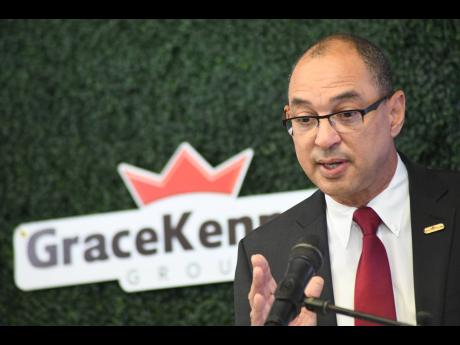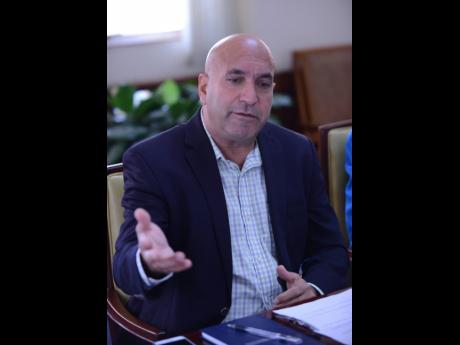Consumers to benefit as BOJ trims rates for first time in years
Consumers and investors should benefit from the dip in interest rates, arising from the first drop in the country’s benchmark interest rate policy in nearly three years.
“This has to be carefully managed against the inflation targets,” said Don Wehby, CEO of food and financial conglomerate GraceKennedy, in welcoming the reduction. “Hopefully, mortgage rates will be adjusted quickly.”
On Tuesday, the Bank of Jamaica (BOJ) announced the reduction in its benchmark policy rate by 25 basis points, bringing the rate from 7.0 per cent to 6.75 per cent per annum.
“Lower interest rates are always welcomed,” said Gary Peart, CEO at investment bank Mayberry, in an initial response to The Gleaner.
The dip comes as a surprise for nearly four-fifths of executives in the financial sector who expected rates to remain the same or chart slightly higher due to economic uncertainty, according to BOJ data in its latest Inflation Survey. Added to that was the impact of Hurricane Beryl in early July, after the survey was completed.
Currently, inflation has cooled to 5.1 per cent over 12 months to June 2024. That’s within the BOJ’s target range of 4.0 per cent to 6.0 per cent.
ASSESSING VARIABLES
“The central bank has reacted to reduced inflation and other economic variables that would have pointed to a rate decrease at this time, and we expect them to continue assessing these variables in their future Monetary Policy meetings and acting appropriately,” stated Chris Zacca, president and CEO of Sagicor Group Jamaica, an insurance conglomerate.
Zacca congratulated the BOJ for adjusting rates at what he termed the appropriate time.
The benchmark rate jumped fourteenfold from 0.5 per cent in late 2021 to 7.0 per cent before easing to current levels. The hike was aimed at cooling annual inflation which peaked at 11.8 per cent in April 2022. The higher rates aim to incentivise saving throughout the economy, rather than spending on unnecessary consumer items. Some items however are staples and unavoidable in some households. Cumulatively, since the start of the pandemic, consumer items such as bread jumped two-thirds in price to beyond $550, according to data from the Consumer Affairs Commission in its supermarket survey. It meant, on the surface, a reduction in consumer disposable income. The BOJ however expects less volatility going forward as commodity prices have waned from recent highs.
“Inflation for processed foods, such as cereals and cereal products and meat, has also been favourably supported by some international commodity prices. As well as by the continued reduction in inflation in the US,” stated the BOJ on the reduction.
The increase in benchmark rates led to higher debt servicing for credit cards, variable mortgages, and similar loans. Certain Jamaicans found it increasingly difficult to service their loan obligations, with soured loans totalling $50 billion up to April, throughout the financial sector, according to BOJ data. The figure was two-thirds greater than the pandemic lows. These past-due loans were not serviced for between one to three months at a time. In May, those past-due loans pulled back to around $40 billion. Experts are watching the impact on these past-due balances in September, as parents send their children back to school.
Despite the temporary inflationary impact expected from Hurricane Beryl, which disrupted agricultural supplies, the BOJ projects inflation to stay within its target range over the next two years. The Monetary Policy Committee’s decision also includes continuing the gradual reduction of the BOJ’s liquidity absorption, which began in June 2024 and injected $20.5 billion into the financial system.
“While there will be an uptick in headline inflation over the next three to five months resulting from the effects of Hurricane Beryl, this uptick will be temporary,” the BOJ stated.
The BOJ added that the domestic economy shows signs of easing demand, a stable exchange rate, and lowered inflation expectations, supported by declining US inflation and lower international commodity prices. However, the BOJ cautions that it will closely monitor risks such as fluctuating energy prices and global economic conditions. Future rate cuts will depend on incoming economic data.



